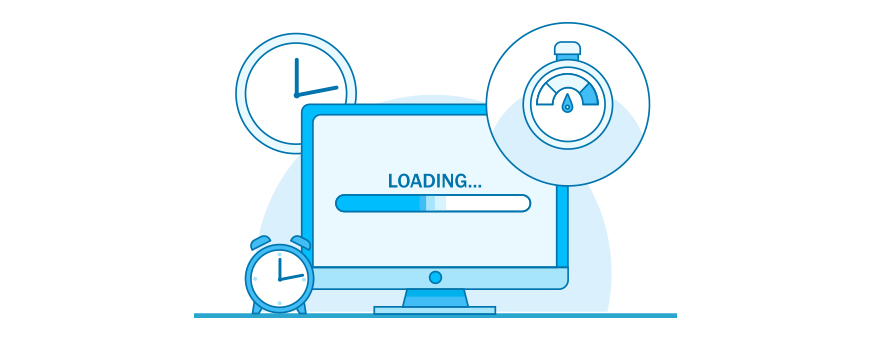
What happens when you are browsing the internet or searching something on the web, and your screen stops responding?
How long will it take for your patience to run out?
The answer would be 10 seconds, or maybe 15. If you are in an urgency and need to look up something immediately, your patience will run out.
There is little doubt that you will leave the website immediately, and look elsewhere.
A study revealed that more than 50% of users would leave a website within less than 5 if it fails to upload. More than 45% users think that a webpage should be loaded within two seconds of clicking its link.
The above survey makes it clear beyond any doubt that the longer your webpage takes in loading, the more chances that the user will click on another link.
The Importance of Speed
There is a very important and robust correlation between the speed and the SEO. This correlation hinges on the following points:
1. The Relevancy Business
2. Exhilarating Experience
3. User Engagement Matters
4. Time Matters
5. Image Optimization
The Relevancy Matrix
We know that search engines are actually business entities. They need more and more users to visit them in order to generate profits.
This means that the most relevant search engine will generate more traffic toward itself. The relevancy matrix helps the search engine sustain its market share.
On the other hand, if the results offered by a search engine are not relevant, users will gradually stop using it eventually affecting its profitability.
Every business would want its website to pop up once someone types relevant words or phrases in the Google search window. The speed of the page is part of this SEO matrix.
Exhilarating Experience
Search Engines determined the relevance of any website through a set of elements. They use complex algorithms with these elements, and finally, come up with the required responses. Moreover, these algorithms are not static. They are always changing and evolving.
To top it off, there are certainly other factors that also affect your search engine score. These are AI, voice searching, and personalization, etc. But, at the end of the day, the user experience is what counts most.
When it comes to loading a webpage, every user needs a roller coaster ride.
No one likes a slow and sluggish response.
If the user has an exhilarating experience, he/she will choose to stay with your site, otherwise, they will search for another one that can provide them with the required experience.
User Engagement Matters
There are several elements of the User Engagement phenomenon. These include the click rate, leaving rate, time spent on the website, number of pages visited, and many more.
All the above elements combine together to produce the user engagement level that your website may be offering.
Where and how fast your website pops up on the search engine’s results page determines the clicks it will receive from users.
The more time a user spends with your website adds to its relevancy, which in turn, determines the place it will appear in the next search.
The correlation with bounce rate is inversely proportional. It if high, the search engine automatically knows that your website is irrelevant to the search. The next time when someone searches for the same words or phrases, your website shows up in the end, or not at all.
If your page is slow to load, it will mean the users will be leaving it without reviewing its content. This will translate more bounce rates and irrelevancy.
Time Matters
Time is money.
The old adage still matters and will continue to matter until the Kingdom come.
The more time your website takes in loading, the more chances that users will get bored and prefer to leave.
If you are running a business through this website, it will mean that the user will not get a chance to see what you are offering. They will leave immediately. This will be a loss of a potential customer and a loss in revenue.
A study revealed that more than 50% online shoppers will only remain loyal to your brand if your website is quick to open.
Other studies have also suggested that an increase in the speed of the webpage always resulted in an increase in the revenue of the company.
It should be noted here that the speed of the web page means the actual time it takes for loading onto the browser of the user, and not the time it sends the first byte to the browser.
Image Optimization
One of the basic reasons for the exponential growth on the internet over the past few years is that it offers great images and videos along with written content.
This allows the user to have a satisfying experience when they browse the net. Images are also very useful for e-commerce websites who are able to display their products in high definition.
Images are very heavy which can slow down the speed of your webpage. The solution to this problem is compressing.
When you compress an image, it reduces the size of the image file without impairing its quality. It also reduces the processing time of the image taken by the browser.
Faster image processing means faster loading. It becomes all the more important for business websites because they feature lots of images.
The Final Word
Speed does matter in SEO. It has been proved through various studies.
User is simply not interested in slow and lethargic pages.
There are many factors that affect the loading speed of your web page. Some of them have been listed above.
A regular check on all these factors will ensure that your loading speed remains maximum at all times. This will help your business in more than one ways.
People will show more interest in your website. Your customers will remain loyal. And you will also show up on the first pages of the search engine.